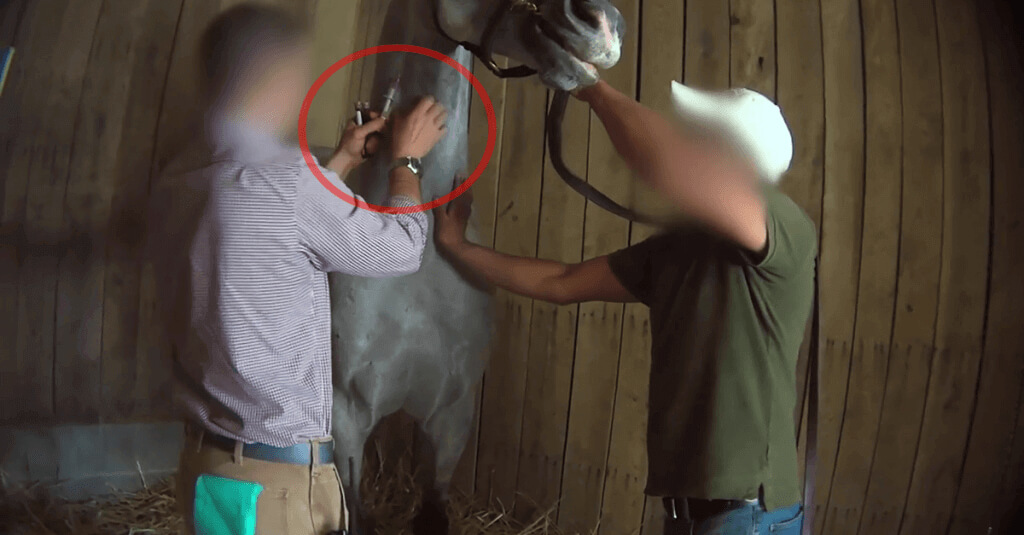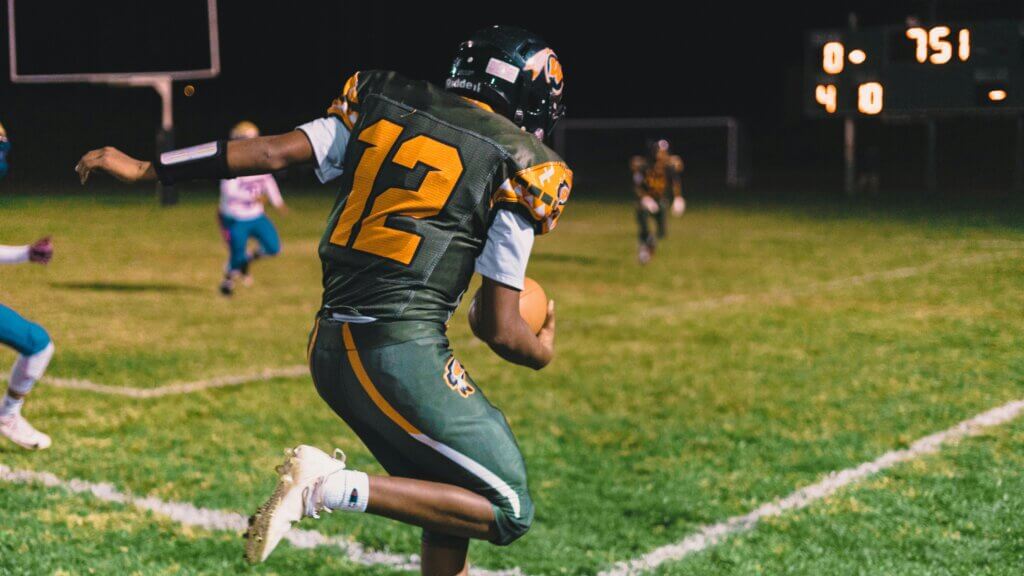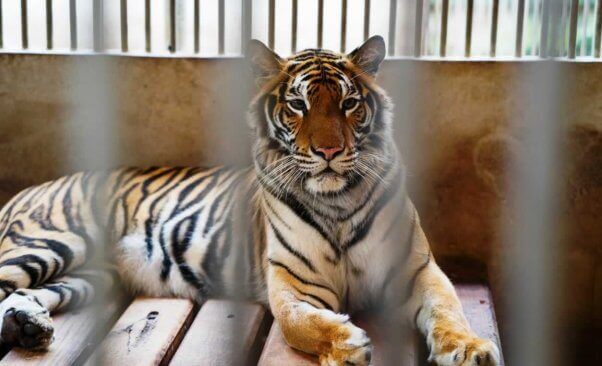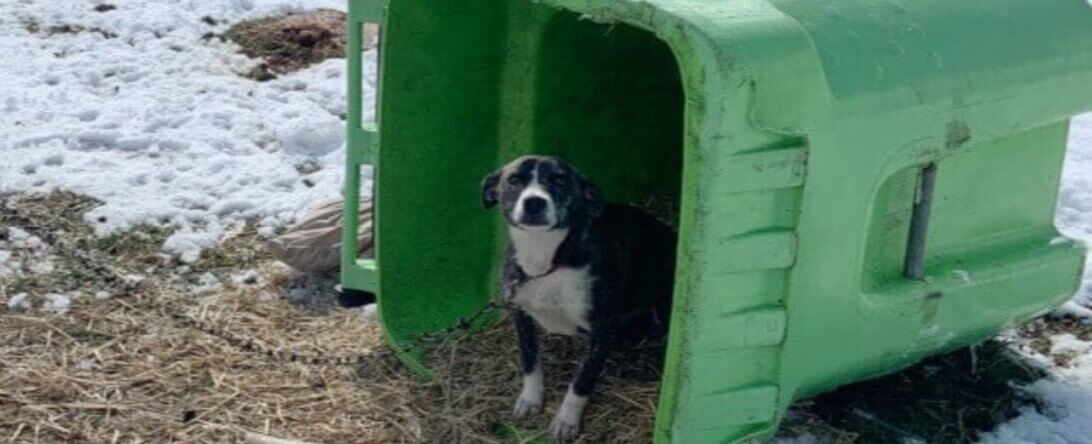A Guide to Helping Animals Used for Entertainment
When I was a kid growing up in Charlotte, North Carolina, I remember looking out the car window and seeing protesters outside a circus. I asked my mom what they were doing, and she replied, “They don’t think animals should be in the circus.” Her tone was neutral—she didn’t seem to feel any negative or positive emotions about the subject—but I thought it was really cool that those people cared so much about animals that they were standing outside with signs to tell others that they should care, too. I thought it was so brave. My family had been to places like marine parks and petting zoos, but from that moment on, I wanted to be like the people standing outside that venue. I wanted to be that brave.
When I turned 18, I finally took part in my first circus protest. And over the course of five years, I built close relationships with people who had been doing this so long that they might have been part of the group I’d seen when I was younger. My mom eventually started joining me. She was probably doing so just to support my interests or make sure I was safe, but then she ended up getting really passionate about it. She and my younger brother still attend protests for animals in cities near my hometown, even though I’m not there to go with them anymore. It makes me so happy.
“The chains, cages, long distances, screaming crowds, flashing lights, loud music—all the torture. The obvious was in my face, and I can’t believe that I had never put two and two together before,” my mom said to me after her first circus protest, when the importance of the cause finally hit her.
To get real for a minute, I’m going to share something even more personal. For those who don’t know, the Portuguese and Spanish colonizers enslaved many Indigenous people when they came to Latin America. And my ancestors were among those enslaved people. When we finally got the Charlotte City Council to ban wild animal acts from coming to our city after two years of attending public meetings and speaking at forums, my family and I cried because we could feel that our ancestors were proud of us for helping animals, our fellow neighbors and inheritors of Beadahá (Mother Earth), break free from oppressors.
Luckily, there are many ways we can appreciate animals without putting them behind bars. Here are a few tips on things to avoid and some humane alternatives:
DON’T Go to Roadside Zoos or Other Animal Displays
Animals in roadside zoos, pseudo-sanctuaries, and traveling shows are forced to spend their lives behind bars just to entertain the public. They’re treated like commodities to be bought, sold, and traded. Intensive captivity leads to physical and mental frustration, and many animals exploited for entertainment display neurotic and even self-destructive behavior. There’s nothing fun about walking around for a few hours at a place like this when you know animals will languish in misery long after you’ve gone home.
DO Go to Animal-Free Circuses
Marvel at the talented human performers in animal-free circuses. It’s awe-inspiring to see what the human body is capable of achieving, and it feels so good to watch fun entertainment knowing that everyone who’s part of the show has chosen to be there.
DON’T Visit Marine Parks (Like SeaWorld)
Orcas and other dolphins can swim dozens of miles a day in the open ocean. Confining them to tiny tanks is like forcing a human to live in a bathtub for their entire life. Marine animals exploited at marine parks are either abducted from their homes in the ocean or bred into a lifetime of confinement. These intelligent social beings weren’t put on Earth to entertain us. If you love dolphins, whales, and other sea life, don’t support industries that abuse them.
DO Grab Some Binoculars
Have you seen this dad on TikTok who really loves looking for birds? I’m obsessed! So wholesome. You can do this with all kinds of animals you’re interested in, not just birds (although they’re pretty cool). 😊
Maintain a safe distance while viewing animals. It’s so rewarding to watch birds and other wild animals going about their lives in their natural habitats.
DON’T Go to Rodeos
In rodeos, horses and cows are provoked into displaying “wild” behavior with electric prods, sharp sticks, and painful “bucking straps” that pinch their skin. Vulnerable calves are chased and roped, and grown men even leap onto them and wrestle them to the ground! Terrorizing animals should never be considered entertainment.
DO Visit an Accredited Sanctuary
Visiting sanctuaries accredited by the Global Federation of Animal Sanctuaries (GFAS) is a wonderful way to get close to animals. There are dozens of sanctuaries for horses and even some for other animals, from tigers and lions to cows and chickens. Sanctuaries will take in animals who were going to be taken to slaughterhouses or were victims of emergency situations. By choosing to visit one instead of a rodeo, you’ll get to see fascinating animals who have remarkable stories while learning about the nail-biting situations they were rescued from. And sometimes these groups even need volunteers, so consider asking how you can help. Just make sure a sanctuary is accredited by the GFAS before deciding to support it!
DON’T Go to a Horse Race
While spectators place bets and show off their fancy fits at the racetrack, the horses are running for their lives. Horses are forced to sprint, often under the threat of whips, at speeds so fast that they frequently sustain injuries, like strained tendons, fractures, and bleeding lungs. Most horses are given cocktails of legal and illegal drugs to try to hide their injuries and enhance their performance. Every week, about 24 horses break down and die at racetracks across the country, and countless more are killed when they’re too old or injured to race anymore.

DO Go to a Sports Game
For a thrilling event that doesn’t harm animals, go to a high school or college sports game. Unlike horse racing, the athletes at basketball, football, or soccer games compete by choice. Pro tip: Snack on these vegan tailgating foods before the game to get revved up.

*****
Animals love their families and want to be free, just as we do. We wouldn’t want to be locked up in tiny enclosures and exploited for entertainment, and neither do they.
Text peta2 to 30933 for ways to help animals, tips on compassionate living, and more!

Terms for automated texts/calls from peta2: http://peta.vg/txt. Text STOP to end, HELP for more info. Msg/data rates may apply. U.S. only.







